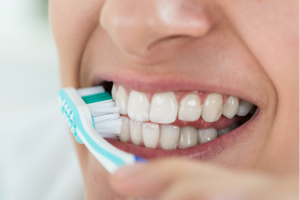
Q:
I am 35 years old.
Recently, I felt pain in my lower right corner of the teeth, so I visited the dentist for a diagnosis. My dentist said that I had a cavity which required a filling. What could be done to prevent toothaches or tooth decays and how often should we go for a dental check-up?
A:
It is frustrating to take care of your teeth by following the routine oral care and yet get cavities. It is not just your oral hygiene that can affect the health of your teeth. Other factors which cause cavities include:
1. Genetics. Some people are more genetically predisposed to caries (decay and crumbling of a tooth) or have thin enamel.
2. You might also have very acidic saliva; dry mouth occurs when you do not have enough saliva in your mouth. If you suffer from dry mouth, your dentist may be able to help by prescribing you medication to help increase your salivary flow.
3. Oral hygiene. Perhaps you are not brushing or flossing properly and adequately. Cavities are more likely between teeth as bacteria can hide anywhere where you are not able to reach with a toothbrush or floss. You can use a fluoride mouthwash to get to tough spots. If your teeth feel as smooth as glass, you have done a good job brushing.

4. Diet, fermentable carbohydrates and acid foods are the main contributors of cavities. This is why people who drink a lot of soda can be prone to toothaches and tooth decay. If you eat a lot of sugar, you give the bacteria exactly what it wants to eat. The more often you feed them, the more cavity-causing acid they will produce. Eating or drinking acidic foods can break down your teeth’s outer shell, known as the enamel, weaken the tooth, and make the teeth more prone to decay. You can reduce the risk of cavities while still enjoy your food by making it a habit to rinse your mouth after every intake of carbohydrates and acidic foods.
5. Not getting enough fluoride. Fluoride makes the enamel of your teeth stronger. You can get it by using a fluoride toothpaste and mouthwash.
6. Health issues (diabetes, autoimmune deficiencies) or chemotherapy and radiation treatment can cause tooth decay. Chemotherapy or radiation treatment in the head and neck area can reduce salivary flow and cause other oral problems which increase the risk of getting a cavity. A regular visit to the dentist is necessary to make sure all cavities are detected before it is too late.
7. Clenching and grinding may lead to cavities. This can put a huge amount of pressure on your teeth. The strain can eventually cause cracks and fractures of your teeth, which speeds up tooth decay.
A dental check-up once every six months is recommended in order to prevent cavities and other dental problems. However, your dentist can advise you better when and how often you should visit based on your personal oral health.

Dr Raymond Lim has been at the forefront of patient-centric dental care services and professional expertise since 2005.
The National University of Singapore (NUS) alumnus who received a Bachelor of Dental Surgery (B.D.S) has advanced, with three years at National Dental Centre treating trauma and emergency patients and a two-year post at polyclinics as the overall in charge. His subsequent years in private practice have further spurred his passion in implantology; He was awarded Certification of Aesthetic Implant Dentistry from the University of Uclan (UK) in 2011.
With determined motivation to provide professional treatments with skill, precision and absolute dedication, he harnessed his years of experience in different sectors of the dental health industry to start his own practice.










